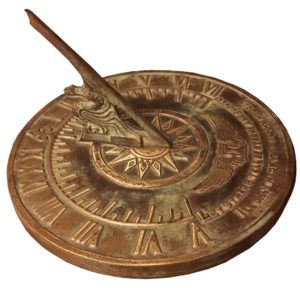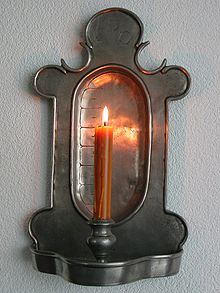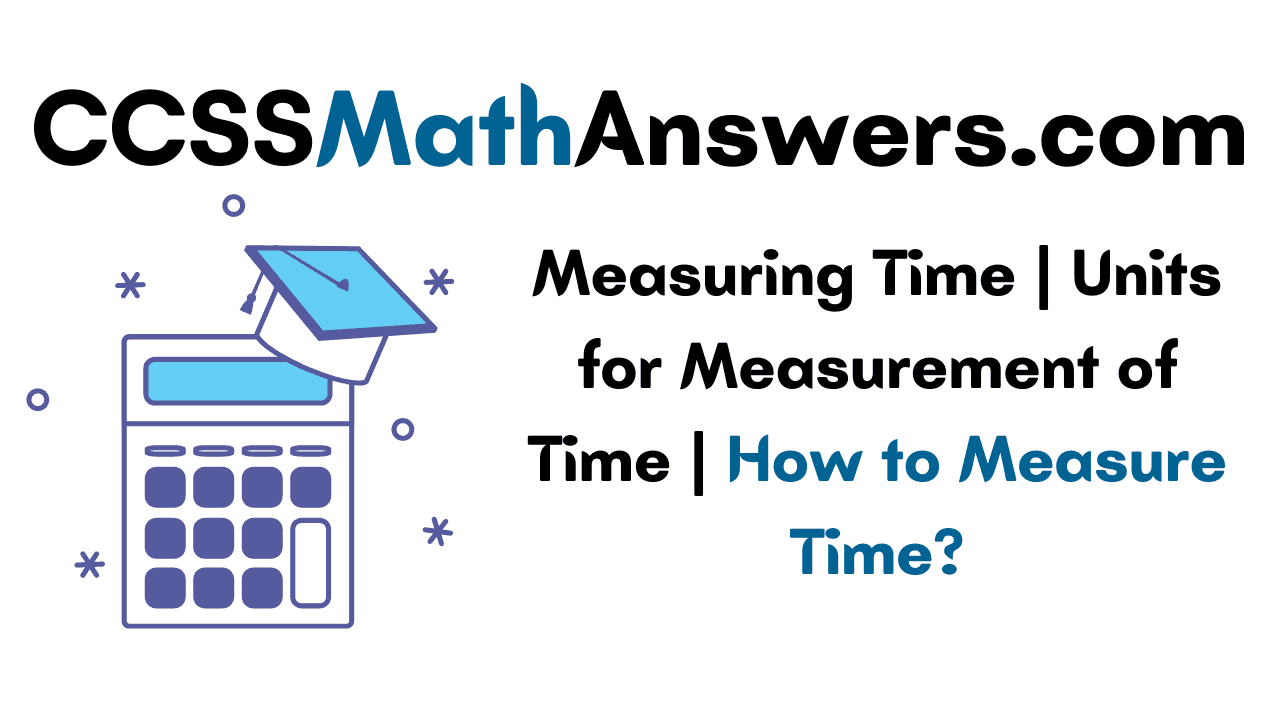Time waits for no one right! Time is very important in our day-to-day activities, without time we can’t run a single day. We do or plan our works, events, and some calculations based on time. Knowing the concept of time helps us know that it measures incidents throughout a day, month, and year, etc. It is complicated work and is challenging for us every time. Let’s know more about the concept of time, how to measure time, few examples based on time, and a complete concept about time by the end of this article.
Do Refer:
What is Time?
Time is the interval between two events. In mathematics, time is defined as the current sequence of programs that occur, from past to the present and to the future. Time is used to measure or evaluate the duration of programs that has happened, happens, or going to happen. Every student has to know the clear concept of time to schedule anything in a day or life. Have you ever wonder before inventing watches, clocks, etc. How the time was measured? The following images show a sneak peek of tools to measure time in ancient times.

Measuring time using Sundial

Measuring time using Candle
What are the Units of Measuring Time?
Measuring time will help us do our daily work from time to time without delaying our routine. Time can be measured by using a simple pendulum, atomic clock, and stopwatch. Time measurement is important because time can be considered as a common language. We measure time in seconds, minutes, hours, days, weeks, months, and years by clocks and calendars.
The tool we used for measuring time is a clock. Basically, the unit we measure time is a day. A day has 24 hours. In units, we have smaller units and larger units to measure. Few more units to measure time are listed below.
Smaller Units to Measure Time
| A day has 24 hours i.e., 1 day= 24 hrs. One hour has 60 minutes i.e., 1 hr = 60 min. A minute has 60 seconds i.e., 1 min = 60 sec. |
Larger Units to Measure Time
| A week has 7days i.e., 1 week = 7 days. One month has between 28 and 31 days i.e., 1 month = 28 and 31 days. One year has 12 months i.e., 1 yr = 12 months. A biennium has two years i.e., 1 biennium = 2 yrs. A decade has ten years i.e., 1 decade = 10 yrs. A century has one hundred years i.e., 1 century = 100 yrs. A millennium has one thousand years i.e., 1 millennium = 1000 yrs. |
As the above units are the most used units for measuring time. Let’s see few examples on time from the below sections.
Measuring Time Examples
Example 1:
Convert 45 hrs to minutes.
Solution:
Given 45 hrs to convert them into minutes.
We knew that 1 hr = 60 min.
The formula to convert hours into minutes is 1 hr = 1×60min = 60 min.
Now, apply the above formula
45 hrs = 45×60 = 2,700 min.
Thus, 45 hours is equal to 2,700 minutes(min).
Example 2:
Convert 23 days into hours.
Solution:
We know 1 day= 24 hrs.
Now, we have to convert 23 days into hours.
The formula to convert days into hours is 1 day = 1×24hr = 24 hrs.
Apply, the formula
23 days = 23×24hr = 552 hrs.
Therefore, 23 days is equivalent to 552 hours(hrs).
Example 3:
Soumya reached her school at 7:00 a.m. and left for home at 2:30 p.m. How much time did she stay in school?
Solution:
Soumya reached her school = 7:00 a.m
Soumya left school to home = 2:30 p.m
Now, we have to know the time that Soumya stays in school.
Here, we do subtraction between both the time then we get the time that Soumya stays in school.
Soumya stays in school = 7 hrs 00 min – 2 hrs 30 min = 7 hrs 30 min.
Hence, Soumya stays in school is 7 hrs 30 min.
Example 4:
Chandu covers 140 km by car at a speed of 50 km/hr. Find the time taken by him to cover this distance?
Solution:
Given, Chandu covers 140 km speed for an hour = 50 km/hr.
Now, to find the distance of time taken by him.
The formula to find the distance is Speed = Distance / Time.
Now, apply the formula
50 km/hr = 140 km / time
Then,
Time = 140 km ÷ 50 km/hr = 2.8 hrs.
Hence, Chandu covers a distance of 140 km at a speed of 50 km/hr in 2.8 hrs.
Example 5:
Karan works for 3 hours 15 minutes in the morning and 4 hours 20 minutes in the evening. For how much time did Karan work in a fortnight?
Solution:
Karan works in the morning = 3 hrs 15 min
Karan works in the evening = 4 hrs 20 min
Total Karan works in a day = 3 hrs 15 min + 4 hrs 20 min = 8 hrs 35 min.
Now, to find the time that Karan works in a fortnight. Thus, one fortnight is equal to fifteen days i.e., 1 fortnight = 15 days.
Here, we have to apply the formula 1 fortnight = 15 days × Karan works in a day.
So, 1 fortnight = 15 × 8 hrs 35 min
= 120 hrs 35 min.
Therefore, Karan works in a fortnight is 120 hrs 35min.
FAQs on Measurement of Time
1. What is the simple definition of time?
Time is the current chain of programs taking place. The past, present, and future events also come under time. We see time by using clocks, watches, etc. We measure time by seconds, minutes, hours, days, etc.
2. What is the basic unit term to measure time?
There are various units to measure time namely, milliseconds, seconds, minutes, hours, days, months, and years. But, the basic unit to measure time is seconds. The unit term seconds is also noted as ‘sec‘ or ‘s‘.
3. What is the basic instrument used to measure time?
Clocks are the basic instrument or tool to measure time in daily routines. In the past, a common measuring tool is used ie., sundial. These days, the common measuring tools are watches and clocks. For accurate measurement of time, we use an atomic clock and stopwatches.
4. How do we calculate the time?
To calculate time, we use the formula, Time= Distance/Speed i.e., t = d/s which is nothing but time equals distance by speed.
